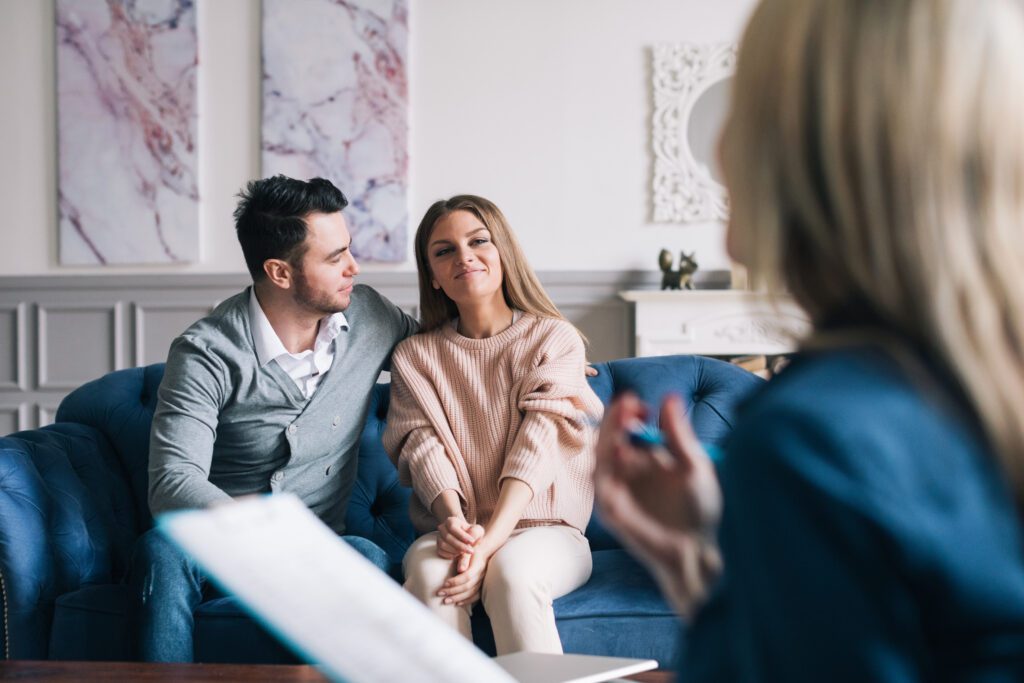Having healthy, successful relationships can be a challenge with the pace of modern life. It may feel challenging to invest in relationships the way we would like, hoping that things will “hold tight” until something slows down. While some relationships deep roots weather neglect and stress, others start to show signs of stress when they go unattended. So how can you repair and develop better relationships? Online or in-person therapy can help with relationship building, even if you are in the room alone.
Unlike the traditional view that individual therapy is really just talking badly about everyone in your life, counseling should help you feel more equipped and confident to have healthy relationships. It is best for your mental wellness to have supportive people in your life and a good therapist is all about helping you improve those relationships. Let’s explore the ways that counseling builds the quality of your relationships.
Understanding relationship challenges: Counselors work day in and out with individuals who are managing stress in their relationships. There can be common patterns that develop and specific areas of distress they learn to recognize. You might feel the discomfort or distance in your relationships, but finding the source of the problem may be more of a challenge. Talking through common issues like communication breakdown or difficulty with trust can help you understand what you might need to do differently. Counseling can also help you reflect on what relationships appear capable of growth and which are unhealthy for you. A neutral perspective helps us navigate the impact of unhealthy relationships and help make more conscious decisions about where we invest our effort.
Challenging our assumptions: A more uncomfortable piece of work in counseling is taking a closer look at our automatic responses. Counselors are trained to recognize patterns of thought and behavior as well as how to help someone evaluate those habits in a non-judgmental way. You might learn that you struggle to trust, for many good reasons. Counseling might also encourage you to consider if there is a new way to feel safe or try something differently.
Learning new skills: Some skills that come from counseling might include specific communication tools you can practice and then try in real-time. There can also be more subtle changes you may learn, like empathy and understanding for others. Counseling both equips us to be the best version of ourselves and also teaches how to bring that same compassion into the rest of our lives. Having a safe respectful relationship with your counselor can be a perfect place to practice being honest, communicating needs and expressing your perspective. Taking full advantage of this opportunity makes it easier to try new things in more complex “real” relationships.
A common misconception about counseling skills is that they are easy and obvious. While really important skills sound easy, they are often much harder to use correctly, especially in the context of hurts and relationship betrayals. Patience with yourself and with the process of change is important when trying out new skills. Be open and curious about how something might help and give honest feedback to your counselor about how you feel it went. There definitely is no one-size-fits-all solution, but suggestions are often tools that have worked well for others in similar situations.
If you are hesitant to consider counseling because you “should” have this figured out, or wonder if its normal to struggle—recognize that tapping into the experience of a counselor can be most valuable before things are at their worst. Seeing distance or hurt in a relationship before it breaks down further is not a sign of incompetence, it shows that you are attuned and willing to seek support because you value that relationship.
Individual counseling can help you address personal issues that might be impacting a relationship, like past hurts or habitual responses. Couples counseling or family counseling might be powerful if you feel ready to openly discuss the challenges with a partner or family member in a neutral and supportive setting. This requires both people in the relationship to want and take responsibility for change. A combination of both can also be powerful, allowing personal support during the challenge of directly confronting relationship challenges in the combined sessions. You can always talk with your own counselor about if and when it might benefit the situation to add family or couples counseling.
Overall, counseling is a supportive place to explore your relationships and learn ways to build better connection. It can help you understand your experience and explore ways to become a healthier friend or partner. It can help you inventory relationships and help you invest more wisely in those that are healthy. Communication skills can be helpful tools for both intimate and family relationships or even workplace relationships. If you are feeling distant or stress in a relationship, consider reaching out to a licensed mental health counselor today.







